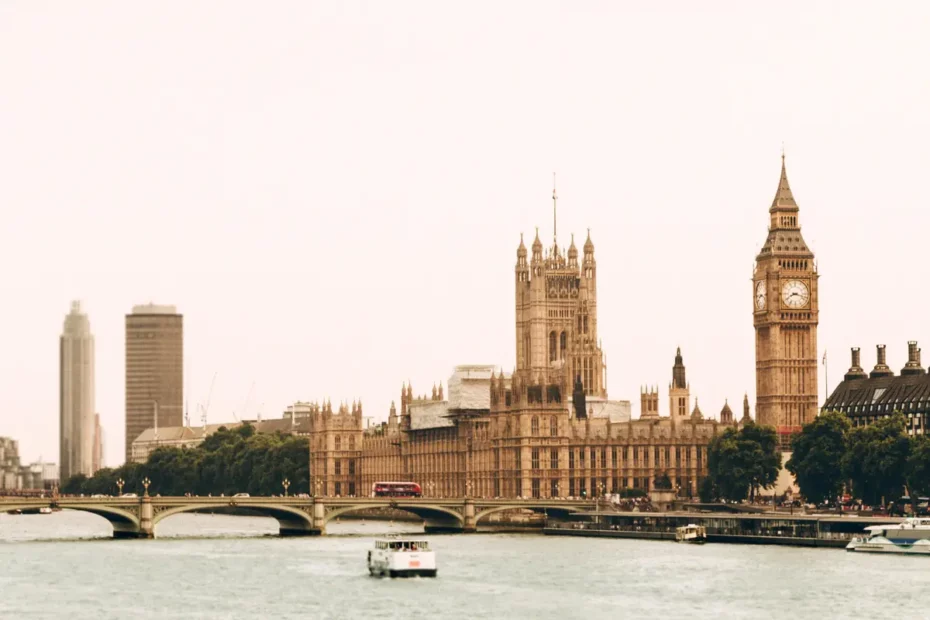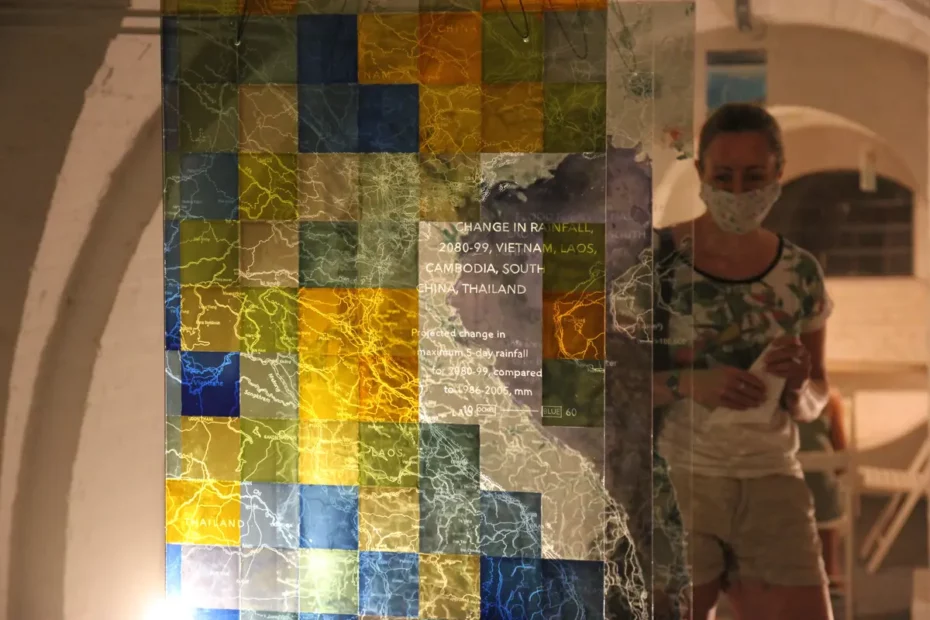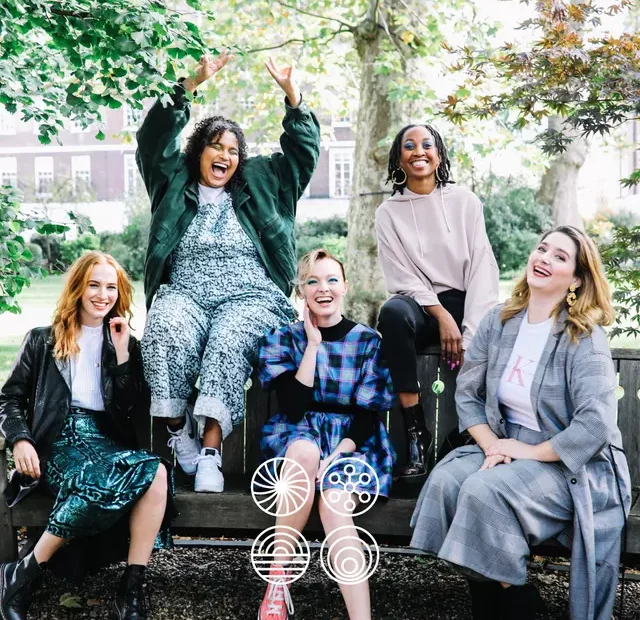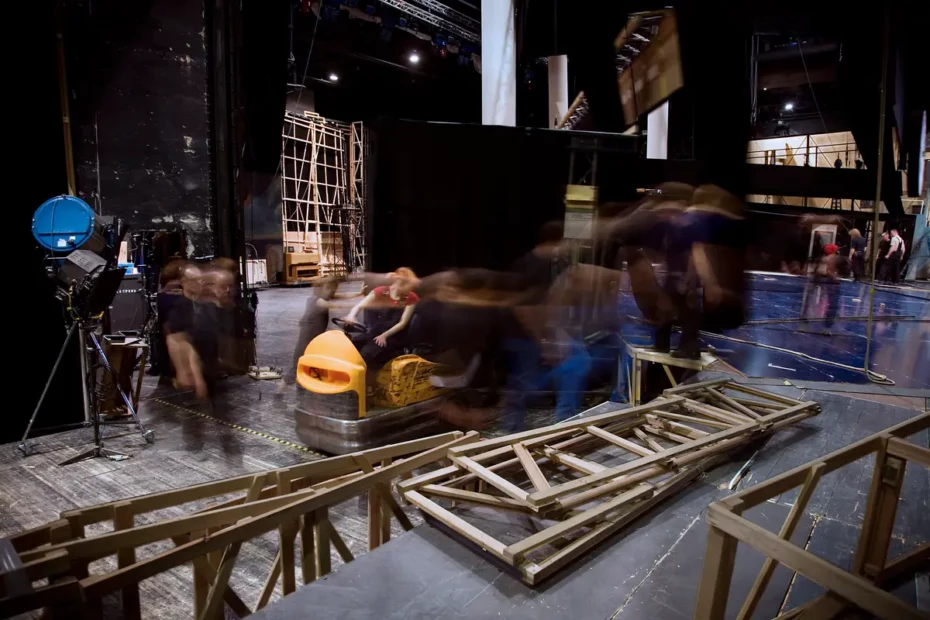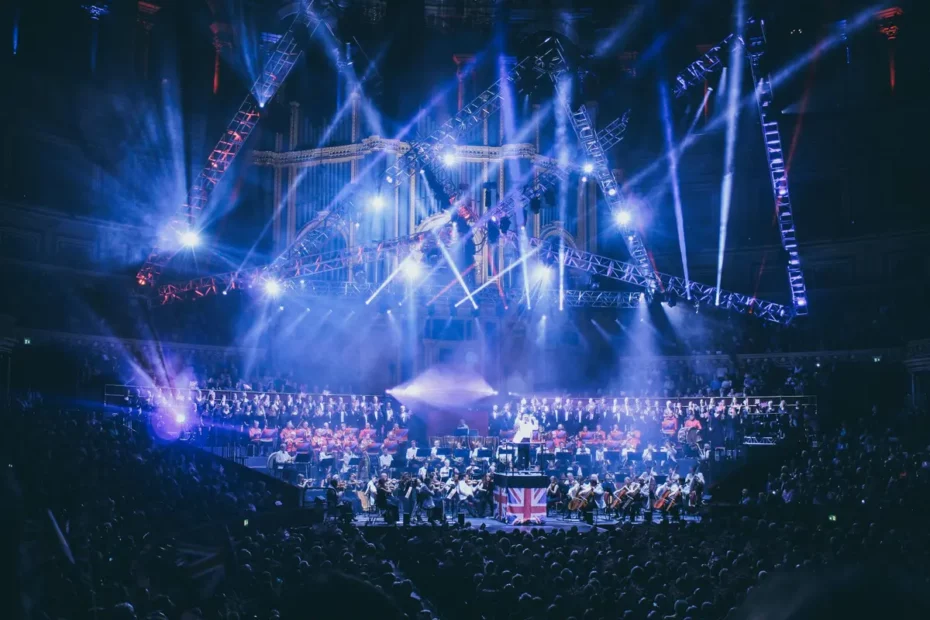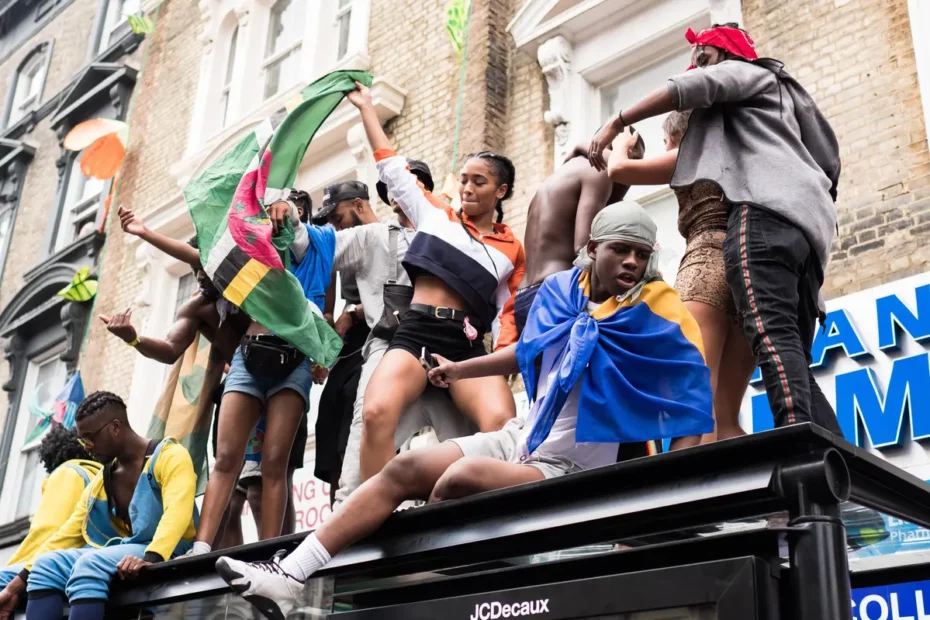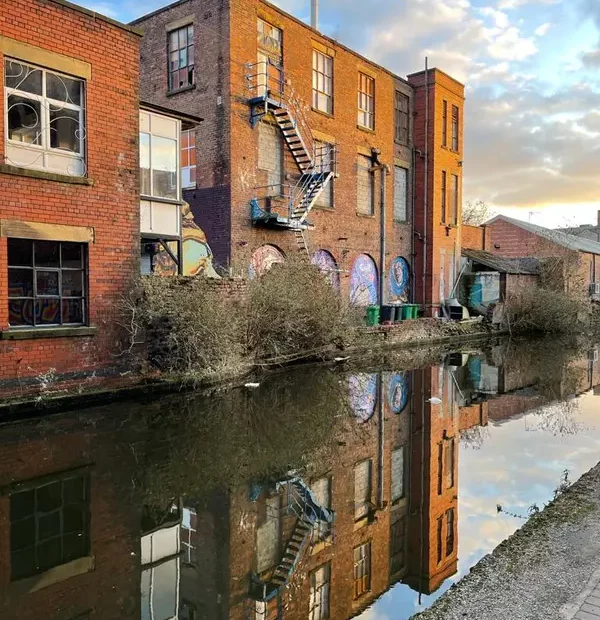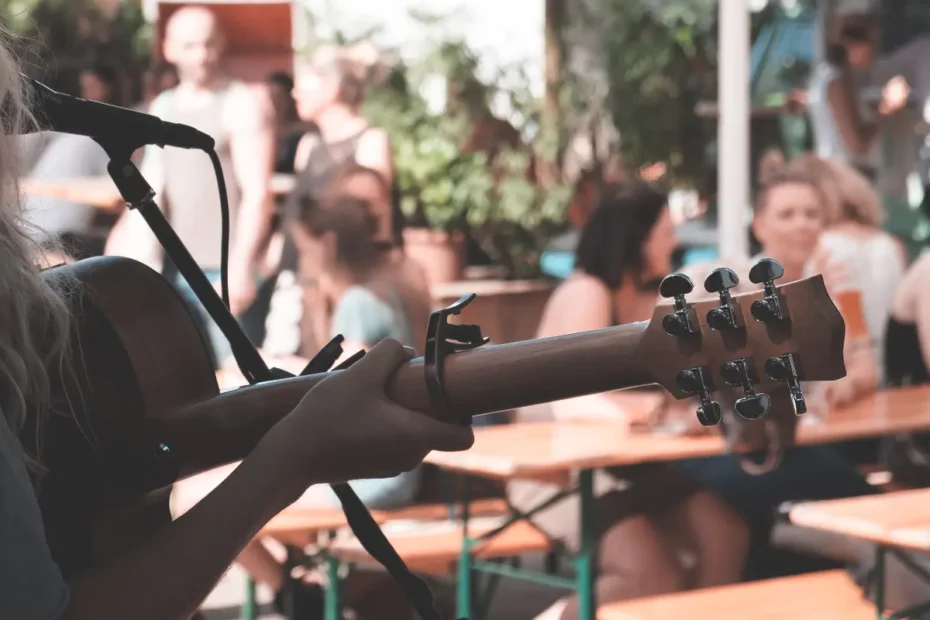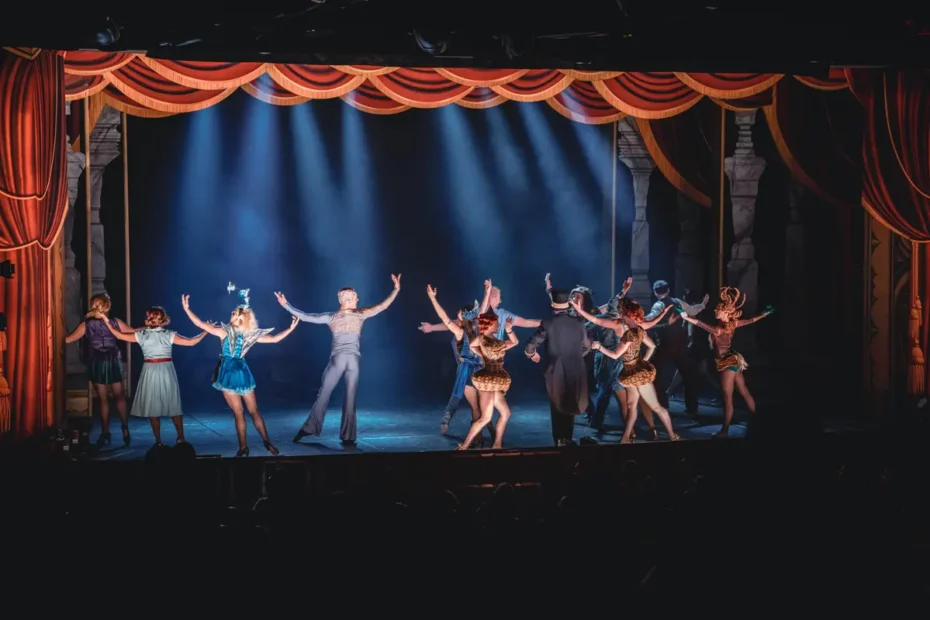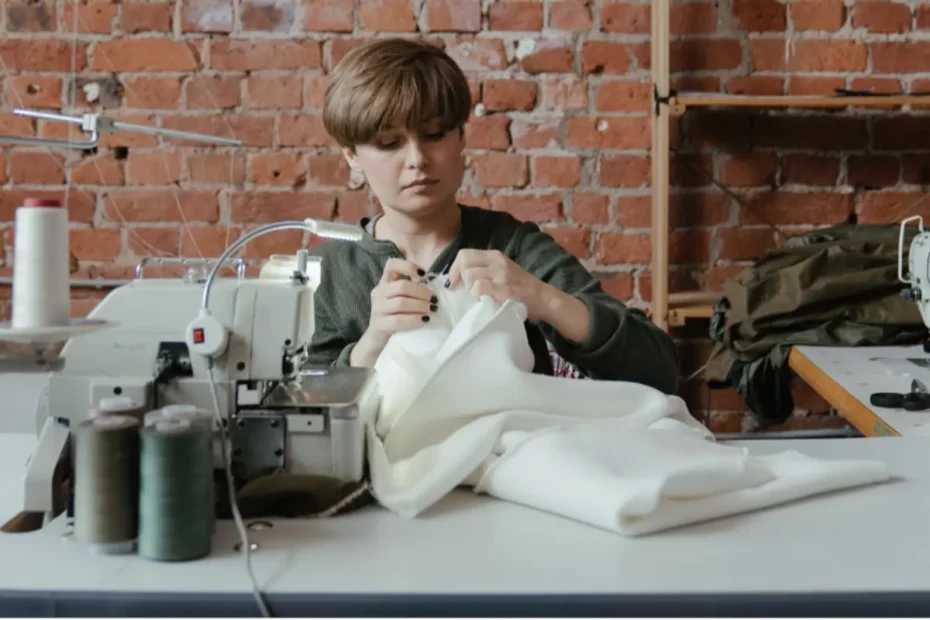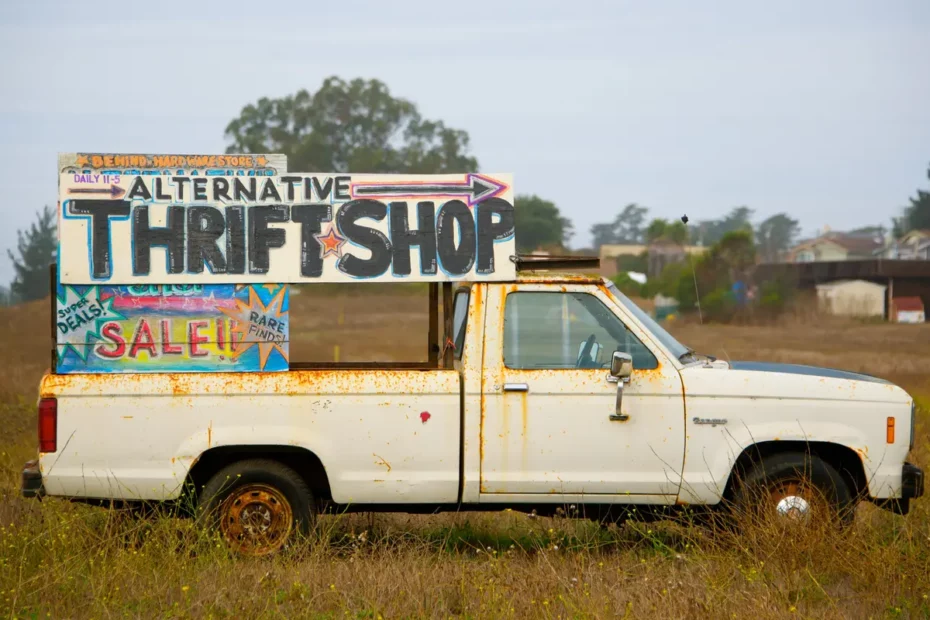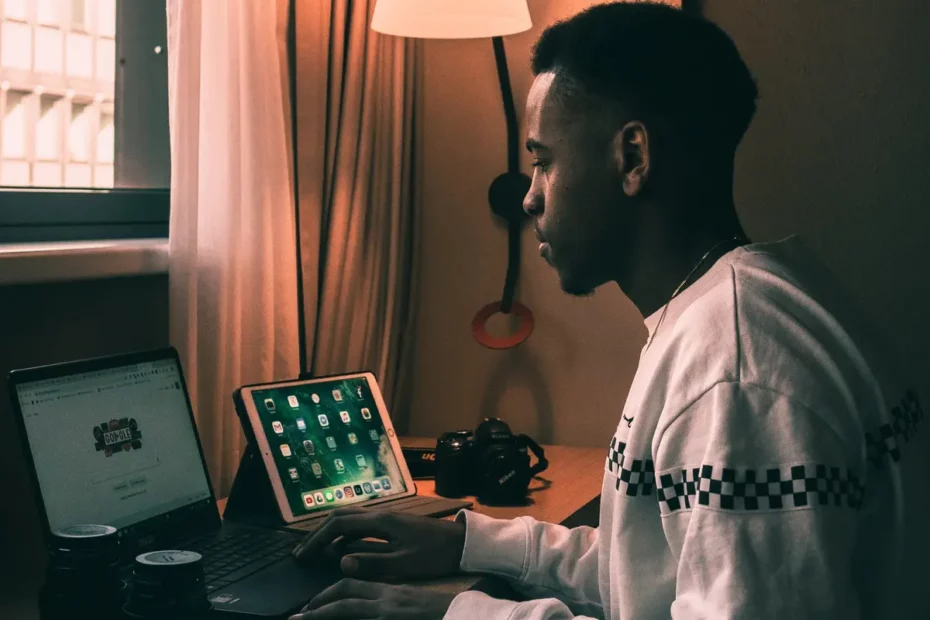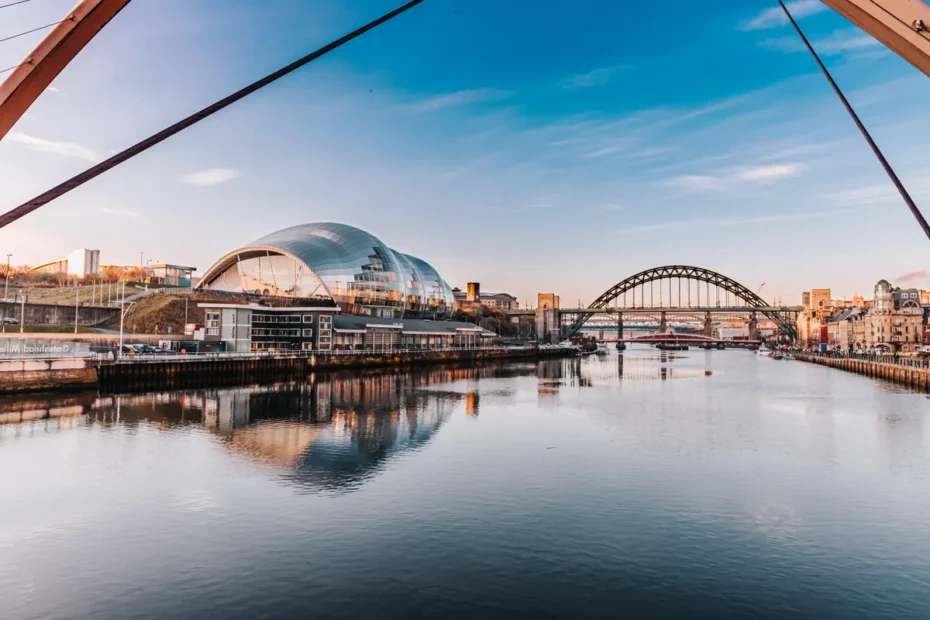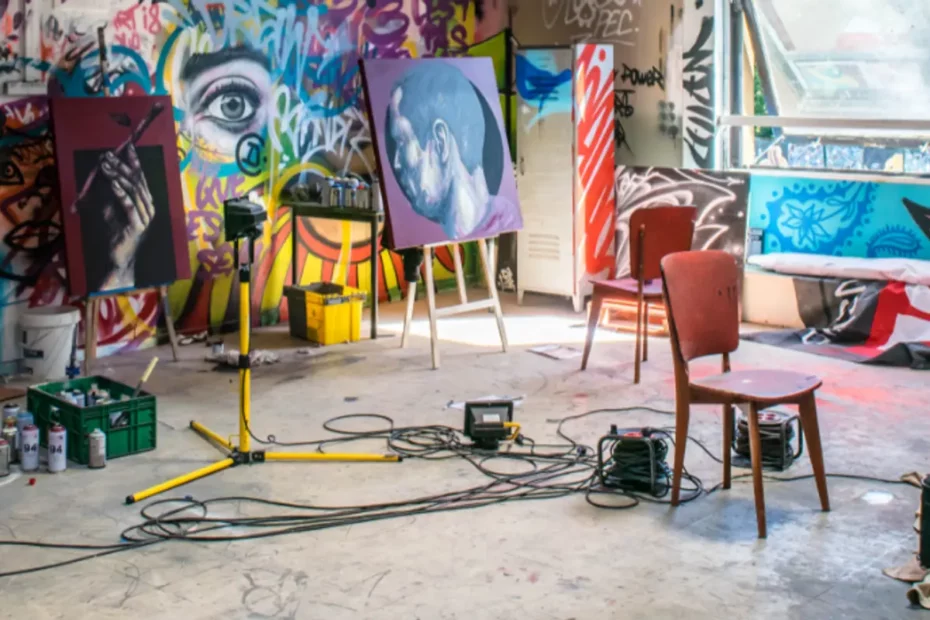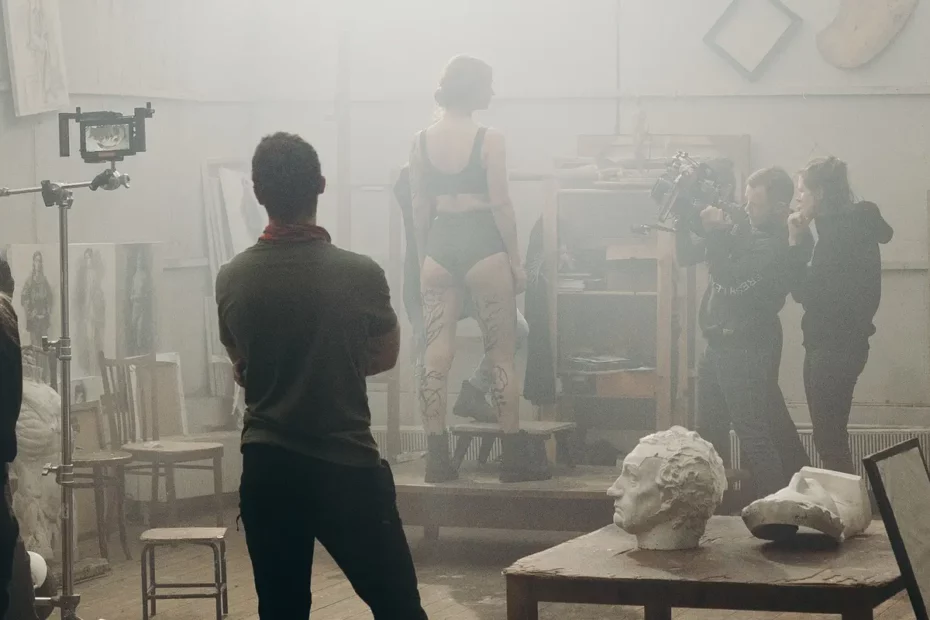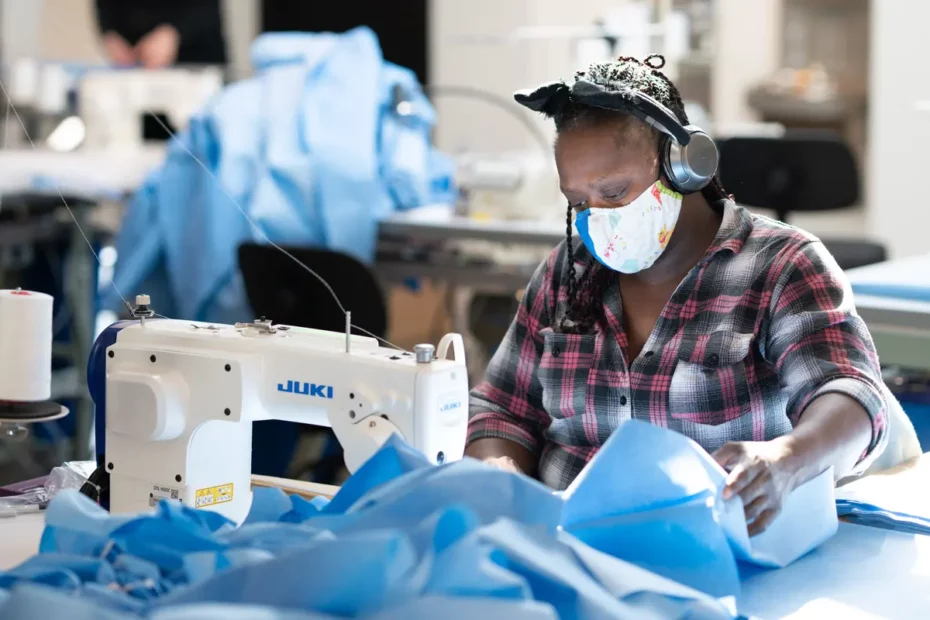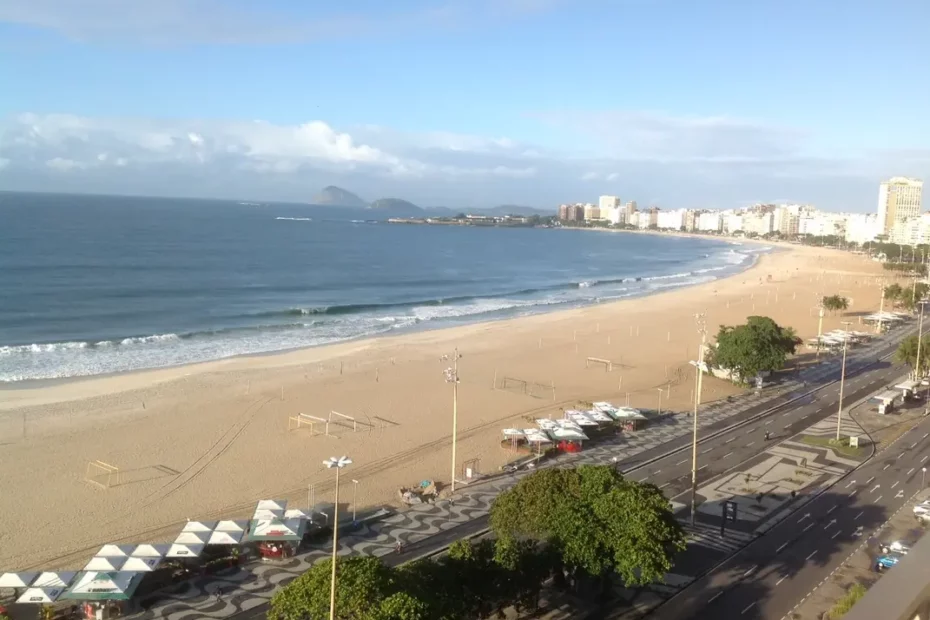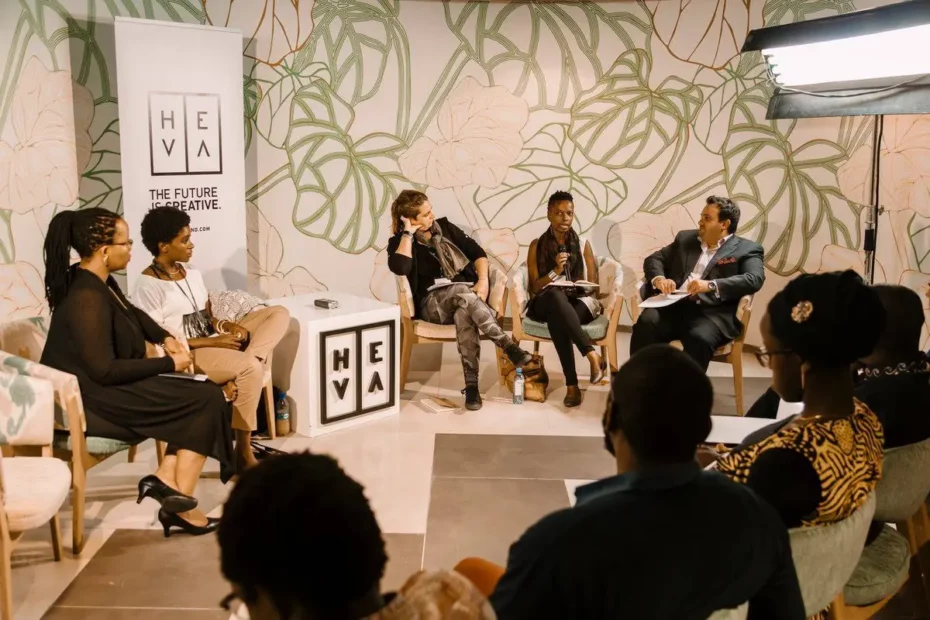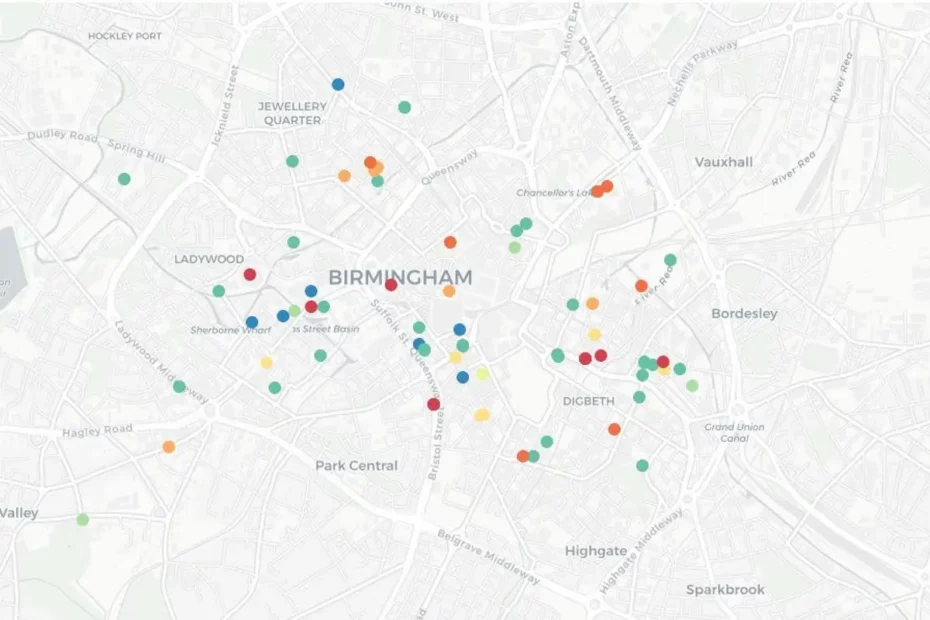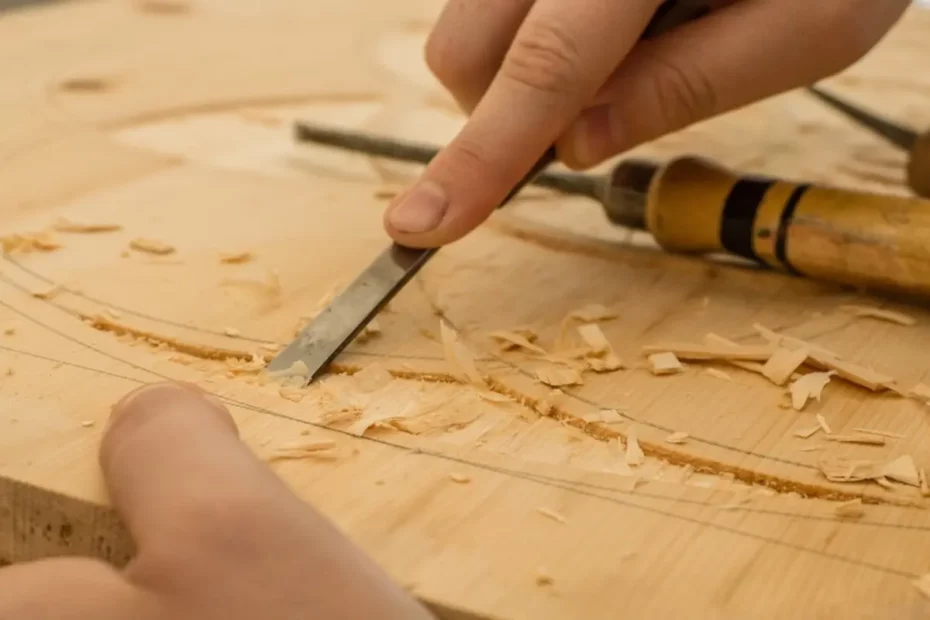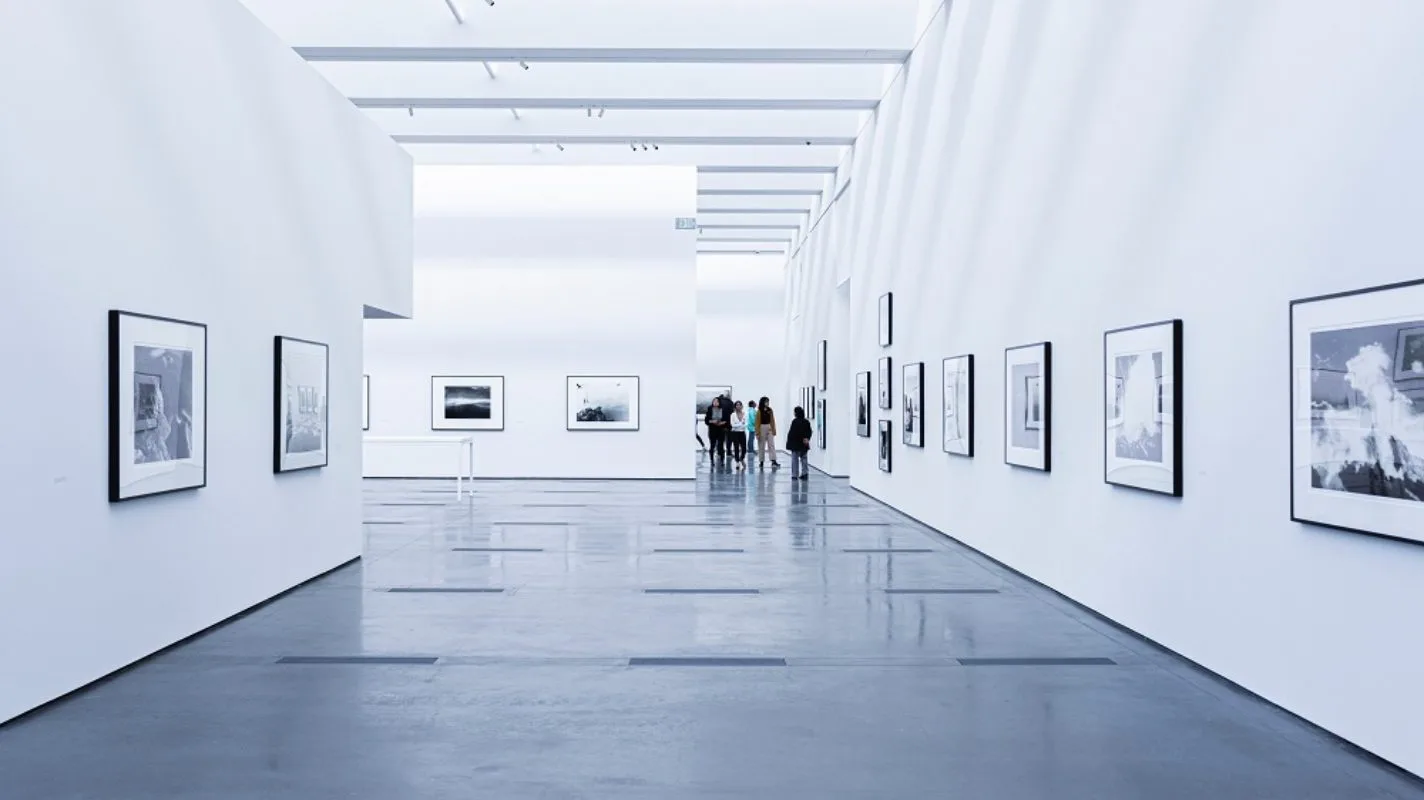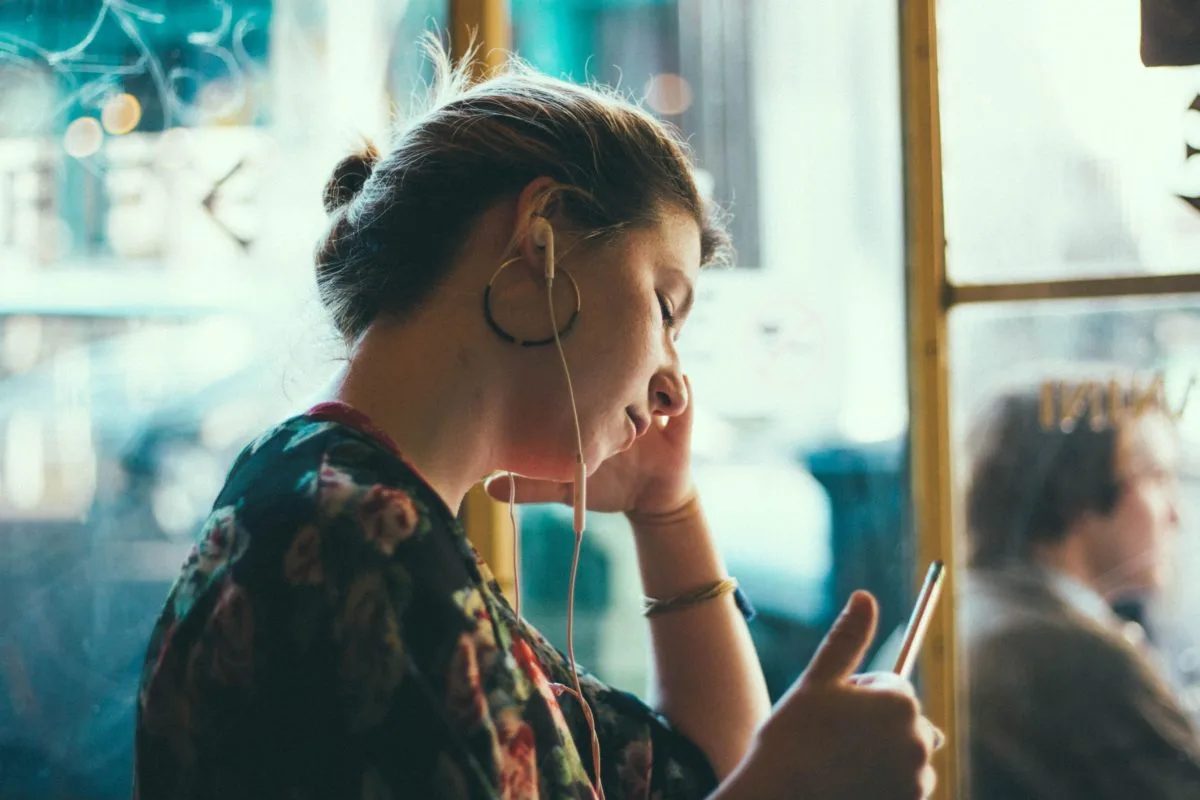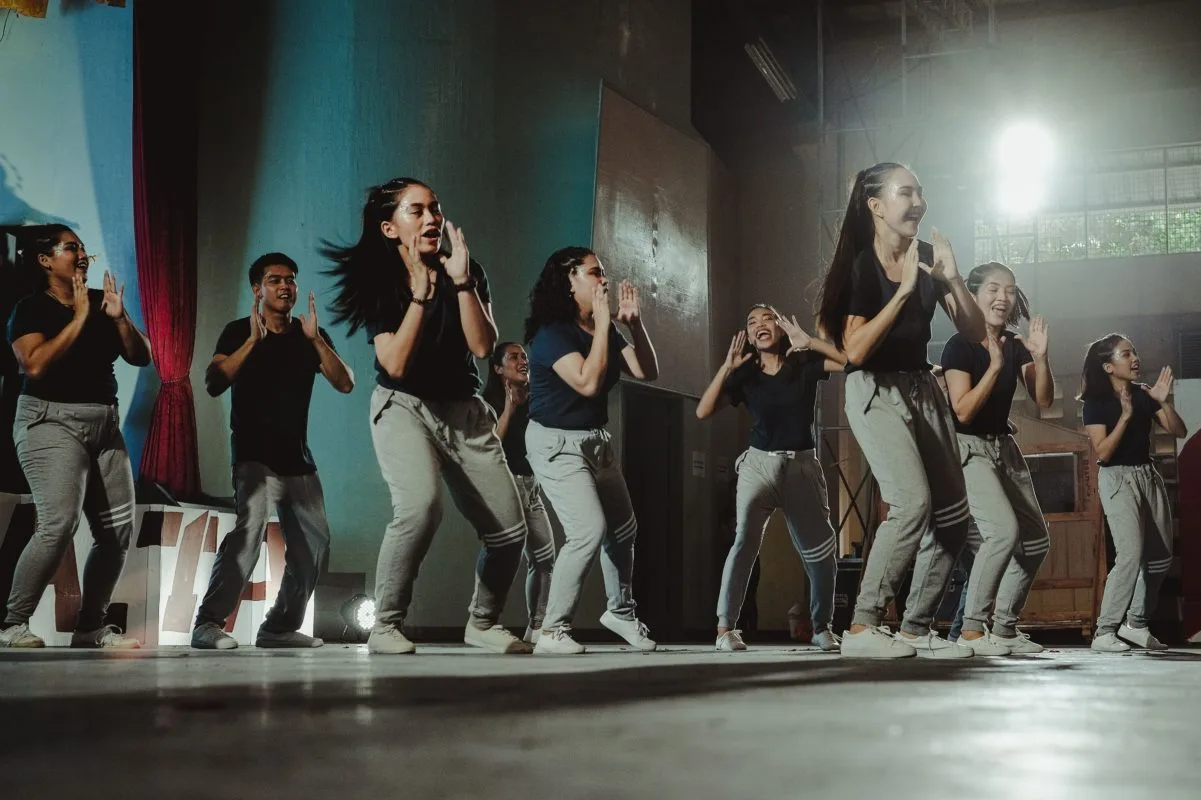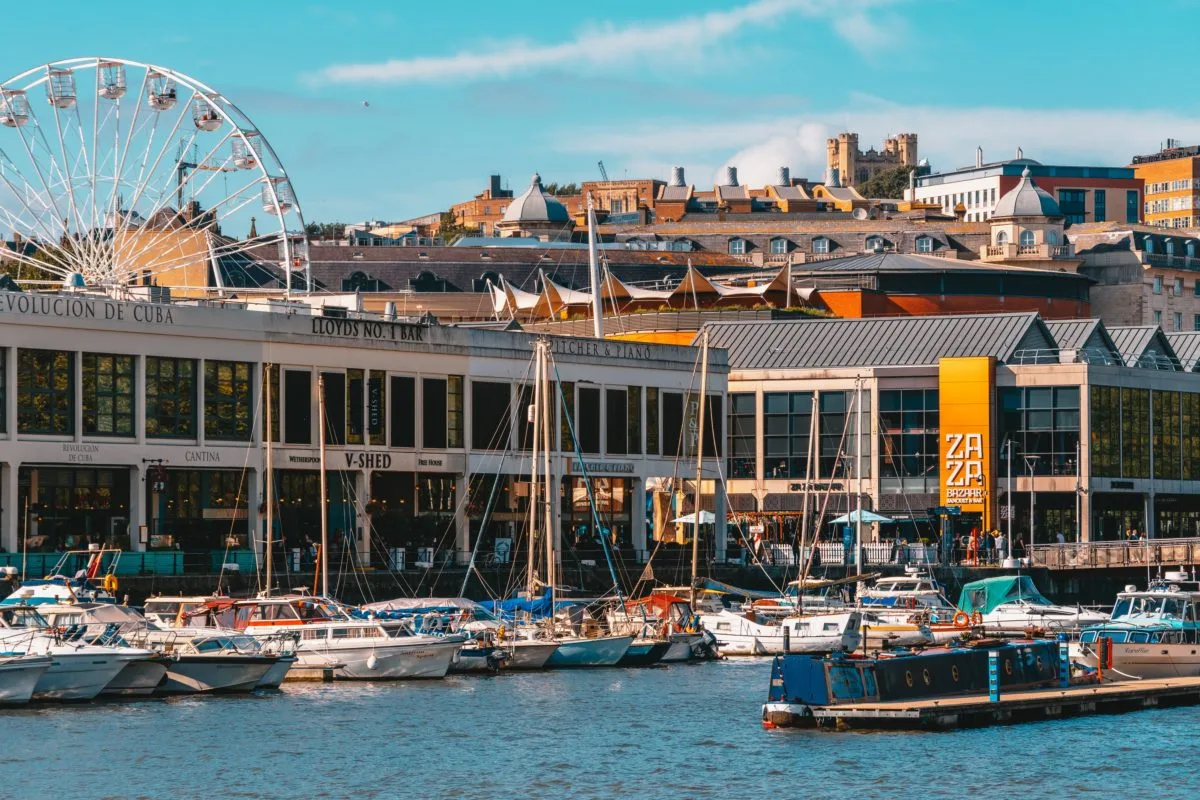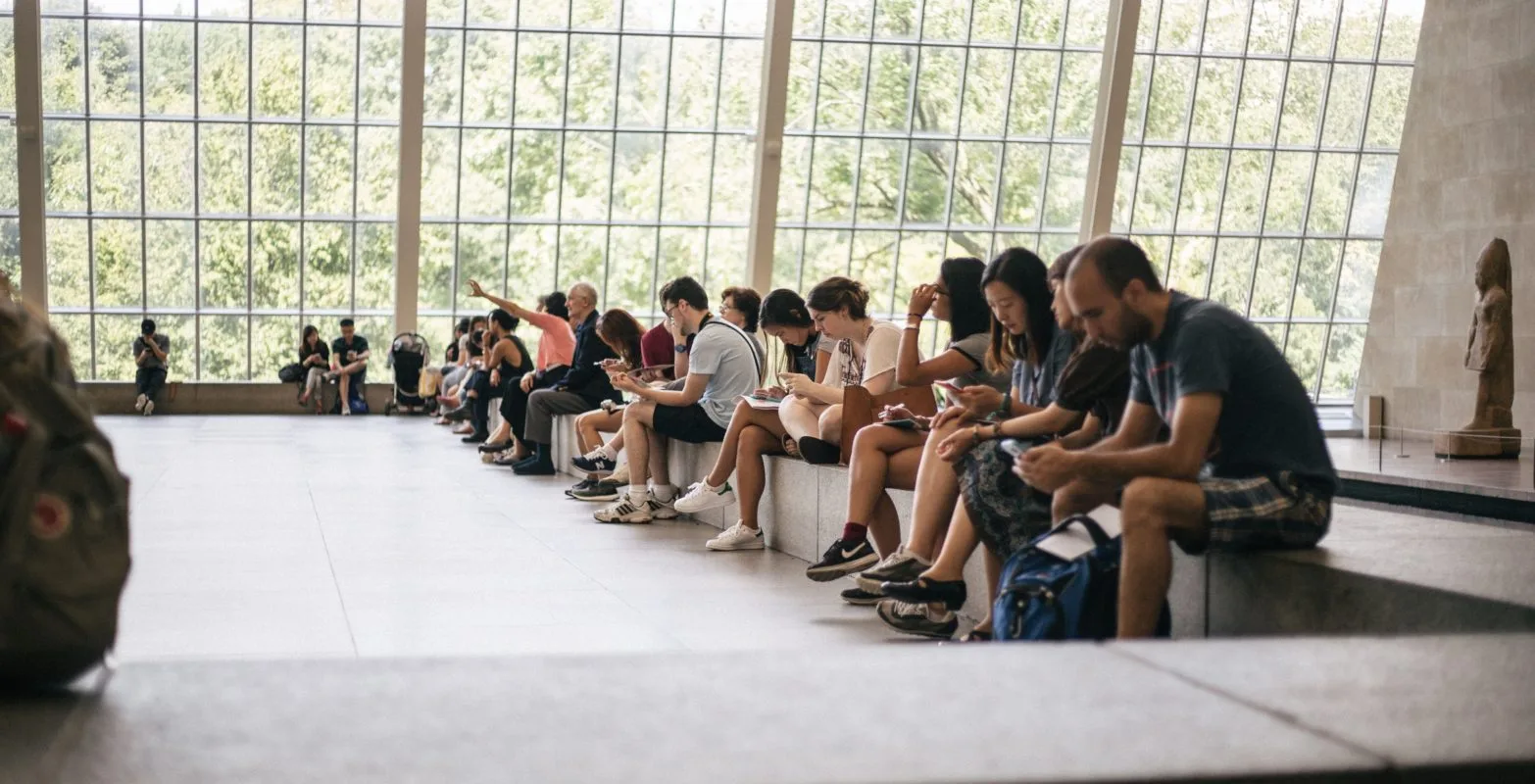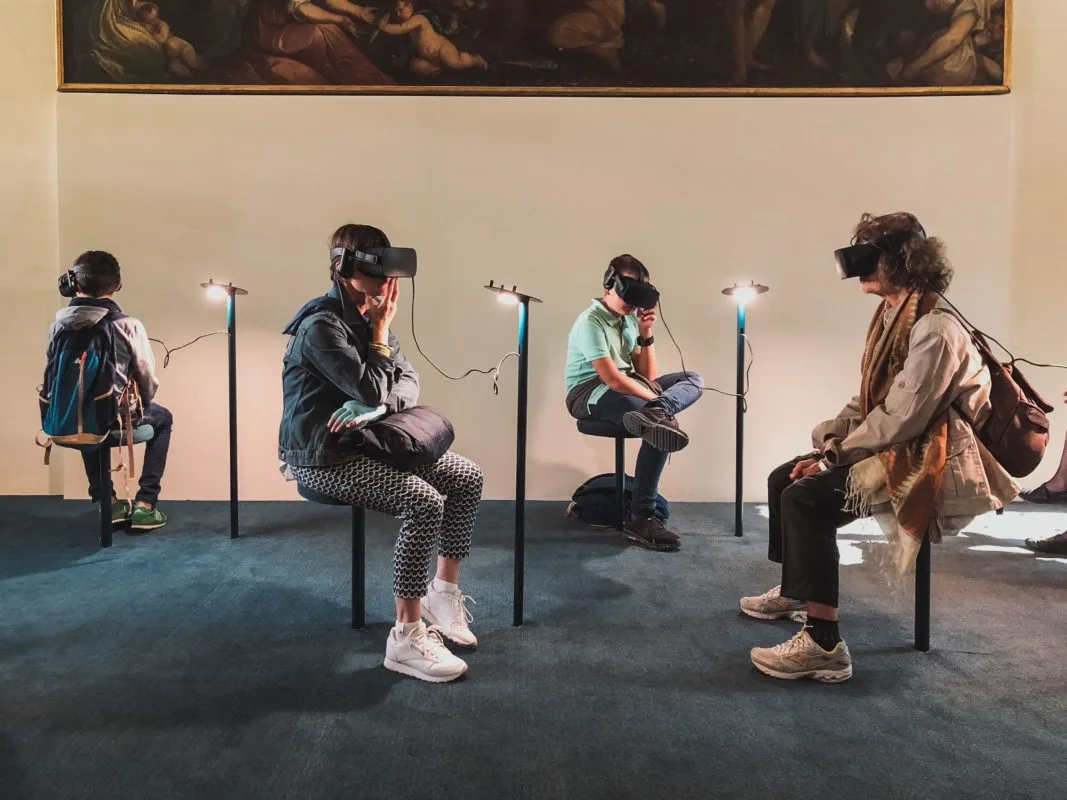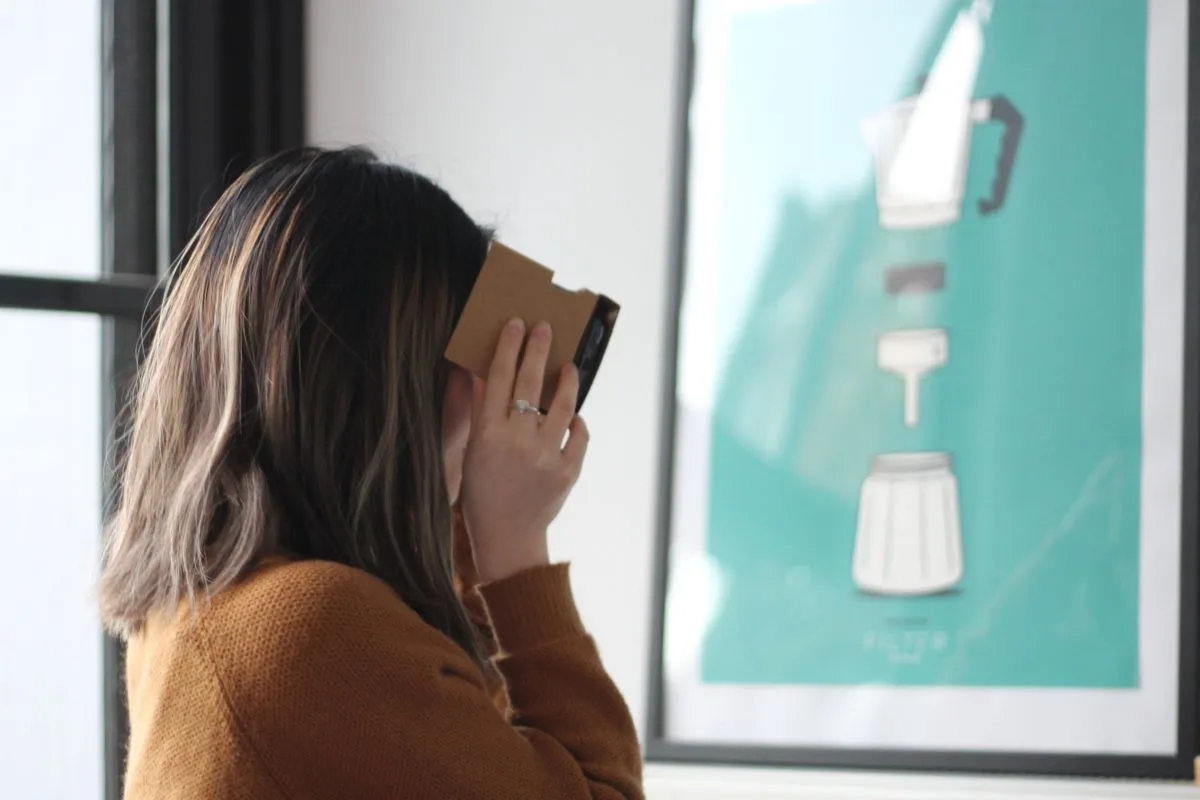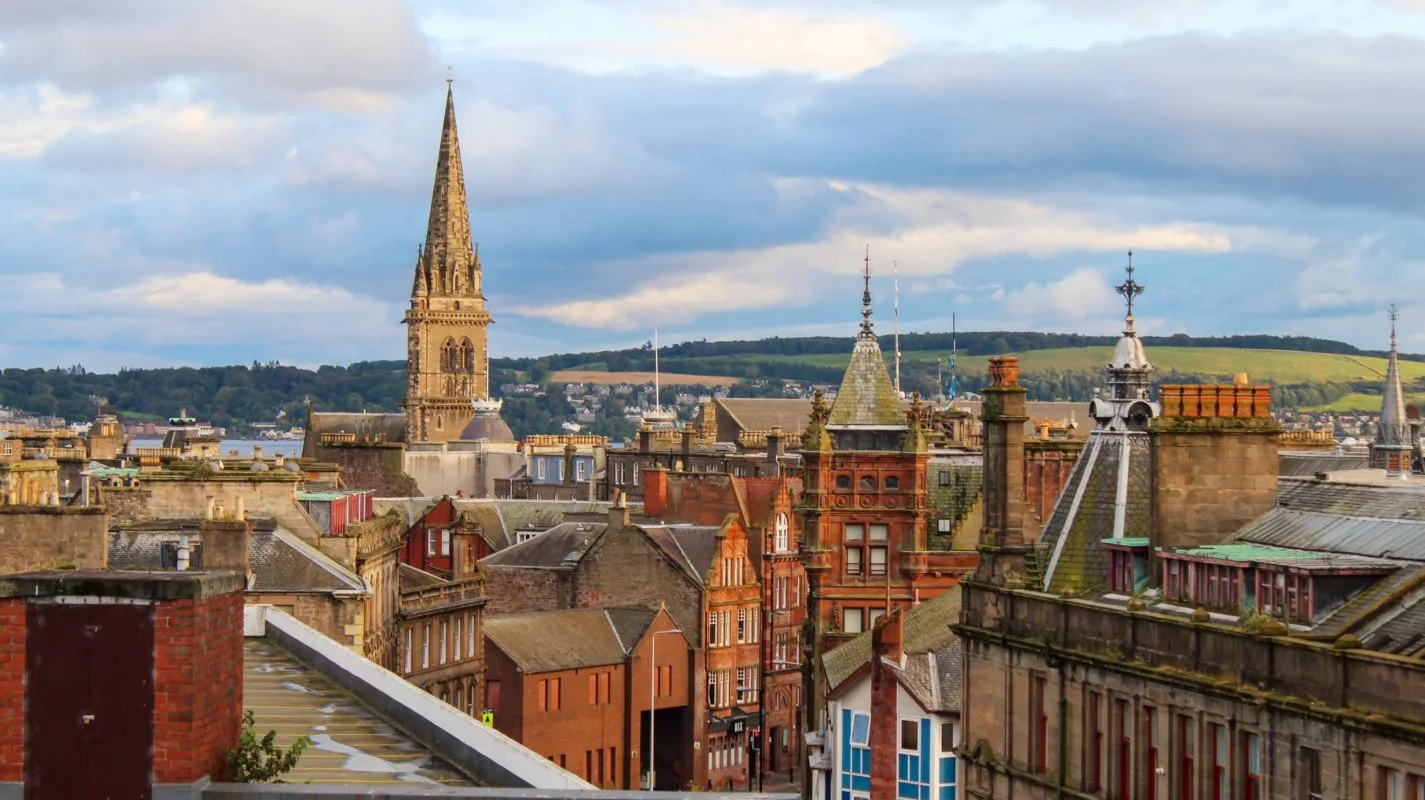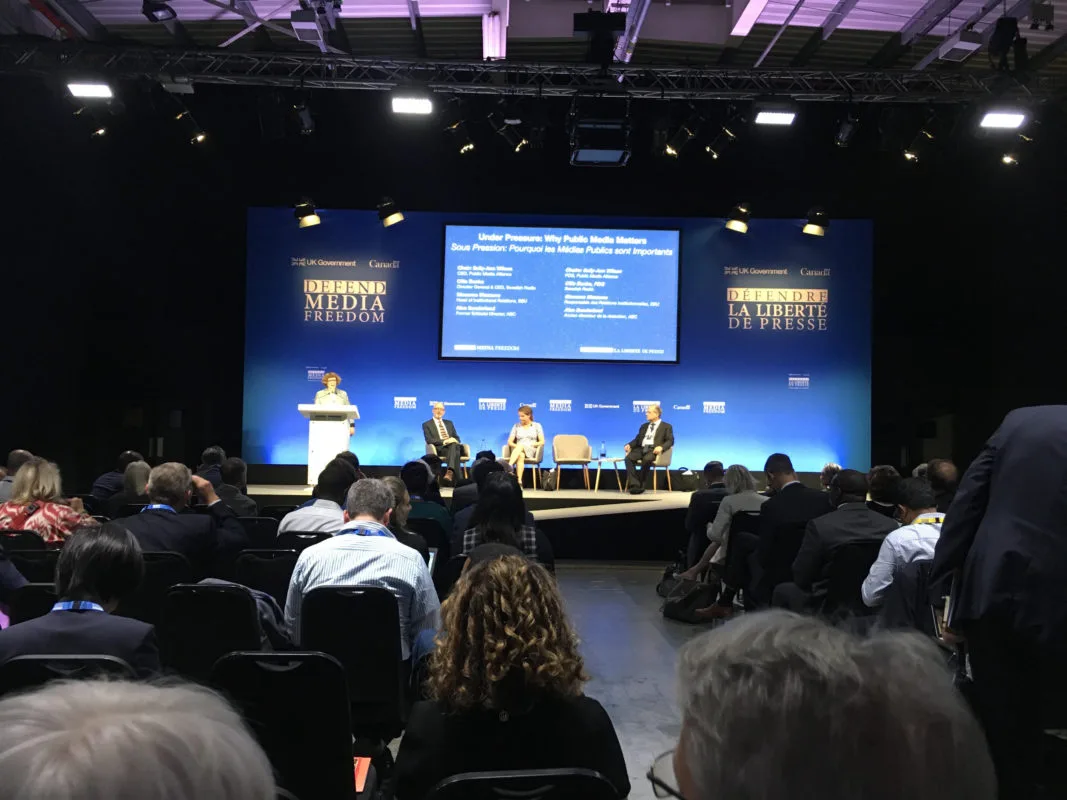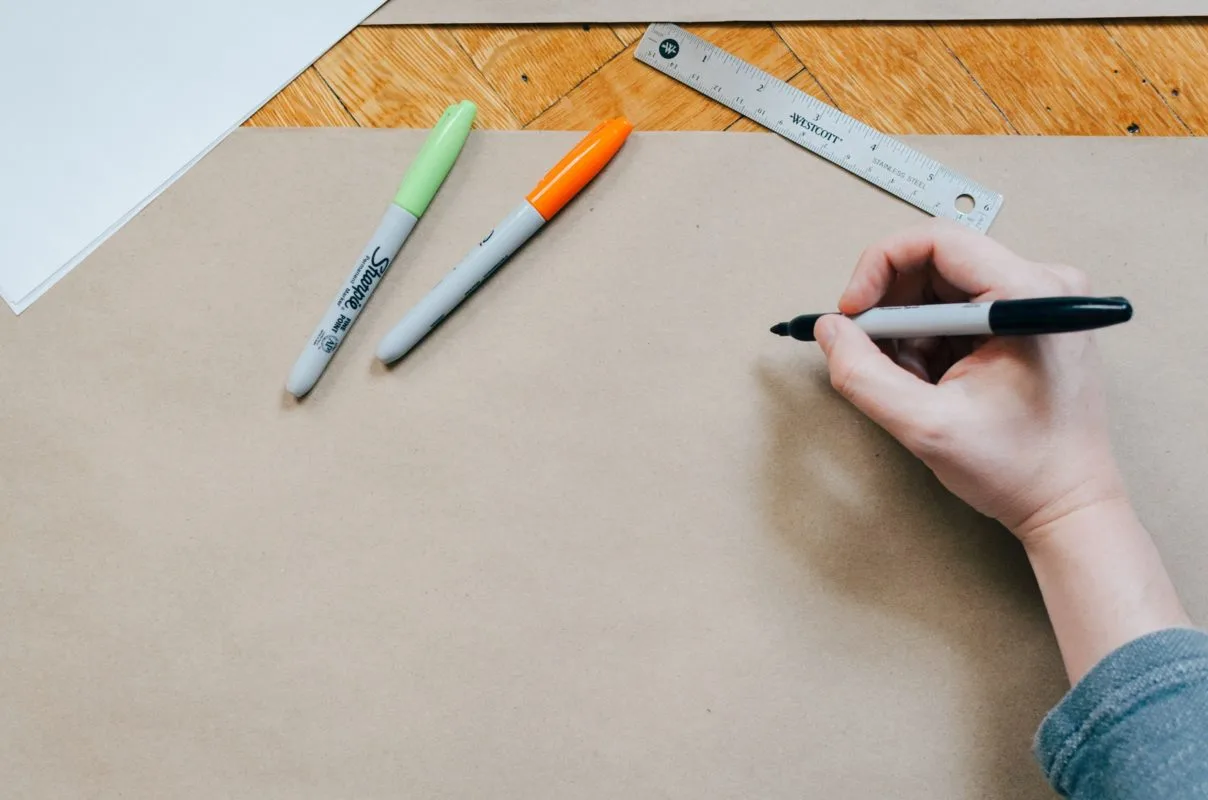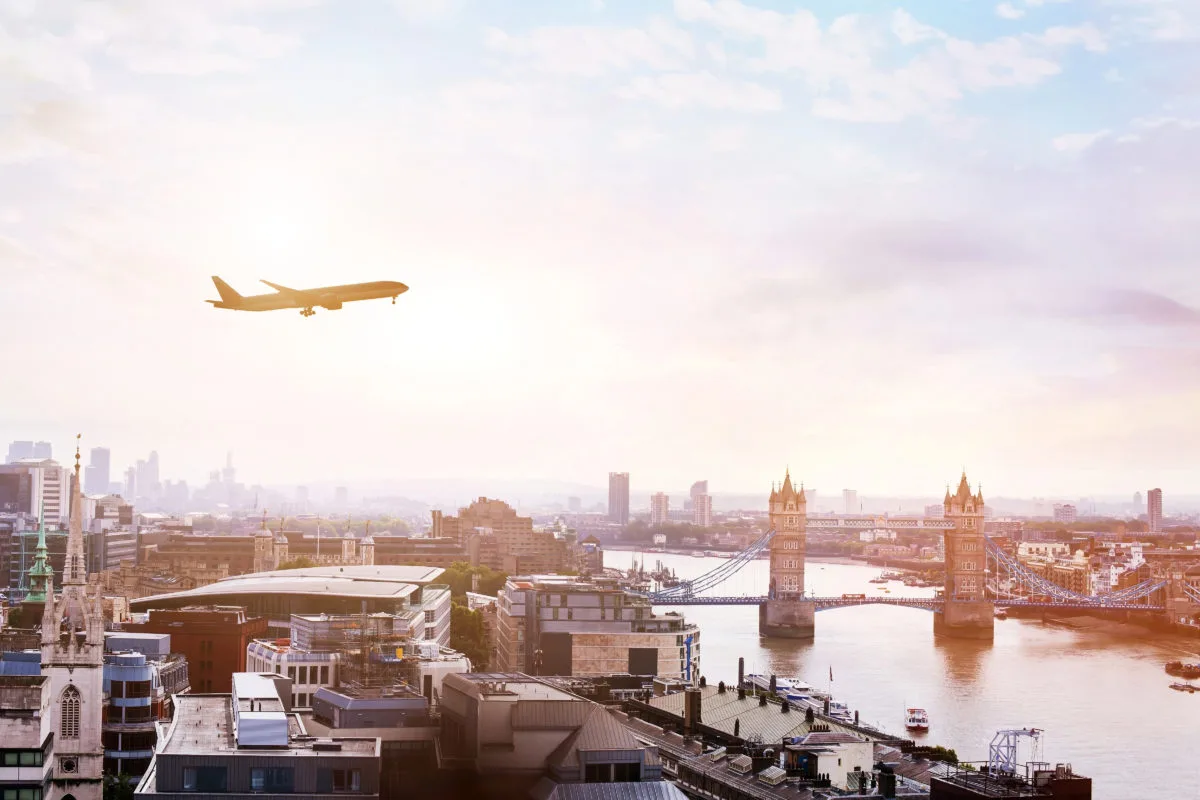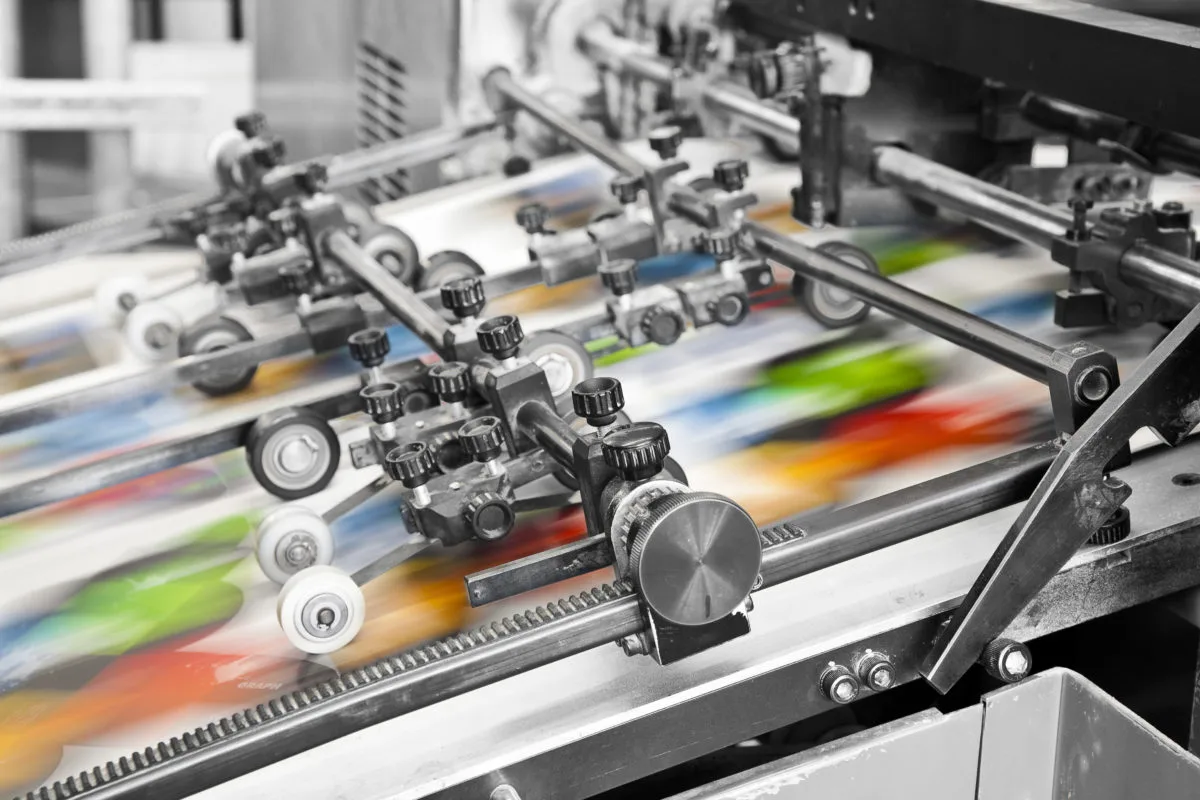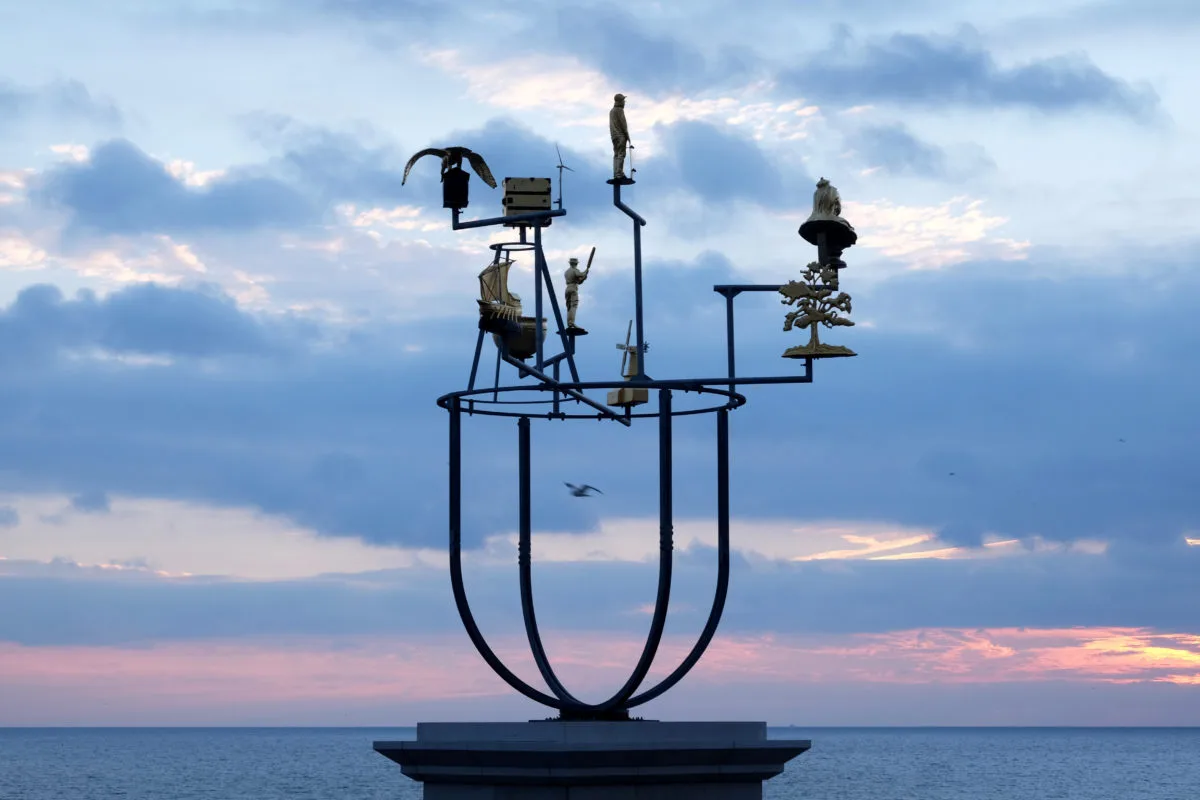Blog

Wired! How 24/7 culture can put pressure on social media employees in the creative industries
What can professional networks, industry, funders and policy-makers do to ensure that digital worker…
PEC’s comment on the 2021 Spending Review and Autumn Budget
The UK’s creative industries – from film to fashion, and from video games to the performing ar…
Art, climate science and policy
Can art play a role in the intersection of climate science and policy? I have been researching …
Managing transition in the UK fashion sector
The UK fashion industry, like other sectors, is experiencing significant transformation due to the c…
How theatre can contribute to the UK’s net-zero targets
“It is with ambition, courage and collaboration as we approach the crucial COP26 summit in the UK th…
Investment into R&D will be vital for the recovery of creative and cultural organisations
The summer and autumn of 2021 has been busy for those researching the impacts of the pandemic on the…
What works to support equity, diversity, and inclusion in the Creative Industries?
Inequality is currently a key concern for academics, policymakers, and the public. In the UK we can …
The austerity decade: local government spending on culture
Local government has been hit hard by austerity. On average, grants from central to local government…
When policy meets place: ‘Levelling Up’ and the culture and creative industries
The UK Government’s ‘Levelling Up’ agenda aims to address regional disparities in economic prosperit…
Plugging the Data Gap: Freelance Workers in the Creative Industries
The Covid-19 crisis has highlighted the lack of available data on the self-employed and freelance wo…
How differently has the creative workforce fared under COVID-19?
Previous PEC research undertaken in partnership with the Centre for Cultural Value shows how the cre…
Freelancers in the Dark
This blog is based on the Freelancers in the Dark Interim Report #1 which was published on Thursday …
One size can’t fit all
On February 10th the House of Commons Treasury Committee published the latest report of their i…
How the pandemic is impacting creative sectors around the world
The creative industries have been severely impacted by the COVID-19 crisis. Over the past months our…
The Brexit shock in the UK’s fashion and textile industry
While the dreaded no-deal scenario did not materialise when the UK left the EU single market and cus…
A little greyer and a bit more rectangular?
Using online museum collections to study the design of everyday objects A little greyer? We tracked …
What does the Skills for Jobs White Paper mean for Creative Industries?
A good start but the devil will be in the detail Last week, after much anticipation, and numerous le…
The UK-EU Trade and Cooperation Agreement
We got there: a deal better than no-deal was eventually found. The two parties started with differen…
Gating the gatekeepers
The responsibilities of platforms for their content is changing, in the UK, in the EU and globally T…
The impact of Brexit on UK’s cultural and creative sectors: More heat than light?
The creative industries have been a pillar of the UK’s industrial strategies in the past two decades…
A jobs crisis in the cultural and creative industries
The impact of COVID-19 on the creative industries, and particularly on the cultural sector, has been…
Why regulating the public sphere matters more than ever
Schlesinger argues that in capitalist democracies we can only guess at how the post-public sphere wi…
What we learned about digital cultural consumption as we went in and then came out of lockdown
Lockdown has had a calamitous impact on the arts and cultural sector, especially, but by no means ex…
Small engines of growth: Understanding creative microclusters
Think about a creative cluster: What comes to mind? Creative clusters are the buzzing centres of the…
Who is working second jobs in the creative economy?
Recent reports that Chancellor Rishi Sunak suggested cultural and creative workers find alternative …
Free-time, leisure, culture and learning in 2020
The beginning of this new decade, the 2020s, was marked by irreversible disruptions. For the first t…
A new R&D centre for the Creative Industries in Chile
Creativity and tech in South America This month sees the launch of a new technology centre …
Rebuilding a more inclusive creative economy
The creative industries currently face unprecedented challenges in the face of COVID-19. The news of…
Ten reflections on the consumption of digital culture in lockdown
This week we published some of the insights on cultural consumption during the UK’s COVID-19&n…
UK sovereignty: A challenge for the creative industries
Under the three word strapline, Check, Change, Go, a new campaign aims to prepare the UK for th…
Rebuilding the creative economy with conscious capital: A view from the United States
At the start of the COVID-19 crisis, the UN Secretary General asked artists, filmmakers, m…
Brazilian culture and creativity during COVID-19: Solidarity and lives
Paraphrasing Jorge Amado, a famous Brazilian literary writer of the twentieth century, in his popula…
Arts and culture: The need for a ‘live’ support system
The arts and cultural sector breathed a collective sigh of relief on Sunday evening (5th July) as th…
Safeguarding a creative and cultural moment
A discussion on the impact of COVID-19 on East Africa’s creative sectors In the first decade of the …
A live music map for Birmingham in times of COVID-19
Recent research from UK Music has highlighted the economic contribution that music tourism has …
The implications of AI for the creative industries and how we should respond
The use and influence of Artificial Intelligence (AI) in the creative industries is growing. AI tech…
Counting craft
So I never thought I’d become a SIC and SOC code nerd. Neither an economist, nor a statistician, I’m…
We need a creative EdTech revolution in the COVID-19 lockdown
The overnight migration of schooling to the home in lockdown has re-energised interest in the idea o…
Class, COVID-19, and cultural occupations
Yesterday’s publication of the latest DCMS Economic Estimates on Employment during 2…
Cultural consumption in the UK during the COVID-19 lockdown
The sudden outbreak of COVID-19 and the lockdown has led to unprecedented changes in how we live, in…
Home is where the art is
Why the government, funders and creative industries should come together to support cultural consump…
10 tips for designing business surveys to understand the impacts of COVID-19 on the creative industries
The COVID-19 crisis has generated an unprecedented level of economic disruption in a short space of …
Accessing new ideas on intellectual property
How can creative businesses make the most of IP? How has technology affected the way we access scien…
The impact of COVID-19 on arts and cultural charities
With many arts and cultural charities having to restrict activities as a result of COVID-19, it is m…
Revisiting the creative industries: contestable narratives, the Sector Deal and the Policy and Evidence Centre
In early 2018 the then Secretaries of State for Business, Greg Clark, and Digital and Culture, Matt …
A first look at connections between the presence of creative industries and the wider urban economy
Creative industries have long been a focus of urban researchers and policymakers. There is a good re…
The hopes and fears that creative employers have for “points-based” skilled immigration post-Brexit
One bright spot in an otherwise uncertain year for immigration policy, was the expansion in October …
The challenge of engaging young audiences
Coinciding with the publication of the House of Lords’ report Public Service Broadcasting…
What are the ethical implications of immersive experiences in arts and heritage sites?
In our recent PEC Discussion Paper, Immersive experiences in museums, galleries and heritage si…
Immersive media in the UK: reaching present-day audiences should not be an afterthought
As a wealth of immersive creative talent emerges in the UK, Catherine Allen and Chris Sizemore of Li…
Shedding light on the workings of the Intellectual Property Enterprise Court
What happens when your copyright is infringed and the infringer won’t pay up or won’t stop infringin…
Facebook’s advertising model threatens democratic values but regulators do have options to intervene
As we learn from the recent Ofcom and House of Lords Committee on Communications…
An opportunity for England to learn about the creativity of its people
There is a rapidly growing body of international evidence that employers, as they navigate…
The continuing significance of the centenary
What does the nature of a centenary commemoration tell us about collective memory and current social…
House of Lords Communications and Digital Committee recommend greater safeguards for public service broadcasting
The House of Lords Communications and Digital Committee has published its report ‘Pub…
Capturing the value of immersive experiences in museums, galleries and heritage sites
Interest in immersive experiences in museums, galleries and heritage sites has increased in recent y…
Discontent industries? Creative works and international trade law: making sense of ‘analogue’ IP rules in a digital age
The global economic order fails to understand the creative industries as producing trade. Trade stat…
An industry take on policy changes needed in the creative industries
Our Industry Champions identify the policy changes needed to help their organisations and sectors I’…
Looking at regional inequalities in the UK’s creative industries
The UK’s Creative Industries have been growing rapidly, both in terms of employment and economic out…
The value of arts and culture
Defining culture, defining value Arts and cultural institutions must strive to be nimble in a fast-c…
How do we safeguard public service media? Collaboration may be the answer
A new AHRC-funded Research Network, InnoPSM, at the University of Westminster brings together E…
Getting creative with big data to examine gender inequality
The term “big data” may bring to mind swaths of private information held by tech companies. But lots…
Why public media matters
The number of journalists killed worldwide in retaliation for their news reporting nearly doubled in…
Heritage, community and opportunity: a lesson on how to understand the value of culture
The broad scope of the PEC’s arts and culture area of work is orienting us in many directions;…
Why is understanding inequality important to understanding the creative economy?
The PEC is a fascinating opportunity to connect a whole range of different research approaches, answ…
Silence speaks volumes
The economic value of our creative industries is clear. But are they a priority for Britain’s politi…
Accounting for creative graduates
As economic studies in the UK and Australia develop increasingly granular accounts of the financial …
Creative accounting
New report from the Institute for Fiscal Studies on higher education subsidies in the loan system sh…
The public values of public service broadcasting
In our area of work, my fellow researchers and I are exploring a set of research questions inspired …
A policy and research agenda for the creative industries
The economic statistics for the creative industries speak for themselves The UK’s Industrial Strateg…
Design: a “General Purpose Creativity” which the UK is extremely well placed to leverage
I was recently reminded of a ‘think piece’ that I wrote in 2005, for the then Department of Trade an…
How internationally competitive are the creative industries?
Creative industries in the global economy Recent international trends show that the creati…
Regulating a platform economy
The Creative Industries Policy and Evidence Centre (PEC) offers a unique opportunity to respond to a…
Driving more successful creative industries through diversity and investing in talent
The creative industries, from film and the wider screen industries to design, advertising and the di…
How location impacts the creative industries
Location matters, especially in the creative industries. The area of work I am leading will be looki…

